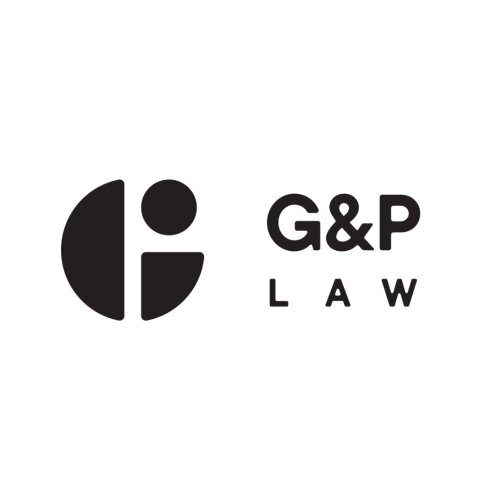Best Hiring & Firing Lawyers in Bulgaria
Share your needs with us, get contacted by law firms.
Free. Takes 2 min.
Or refine your search by selecting a city:
List of the best lawyers in Bulgaria
About Hiring & Firing Law in Bulgaria
The legal landscape governing hiring and firing in Bulgaria is primarily outlined in the Bulgarian Labour Code, which sets forth the rights and obligations of both employers and employees. Bulgarian employment law emphasizes the protection of employees, ensuring fair practices in hiring, contract execution, and termination. Compliance with these laws is crucial for businesses to operate legally and avoid potential disputes or legal action.
Why You May Need a Lawyer
Legal challenges in hiring and firing can arise from various situations. Businesses may need a lawyer to draft employment contracts, ensuring they comply with local regulations. Employers might face disputes over unfair dismissal claims or discrimination allegations, which require expert legal representation. Employees may seek legal advice if they believe they were wrongfully terminated or if their employment rights were violated. Engaging a lawyer ensures that both parties understand their legal standing and that their rights are protected.
Local Laws Overview
Key aspects of Bulgarian hiring and firing laws include:
- Employment Contracts: Must be in writing and include essential terms such as job description, salary, working hours, and contract duration.
- Probation Period: Typically up to six months, allowing employers to terminate a contract without a specific reason, provided termination occurs during the probation period.
- Termination: Employers must provide valid grounds for dismissal, such as poor performance or economic needs, and adhere to notice periods and severance pay regulations.
- Discrimination and Harassment: Bulgarian law prohibits any discrimination during the hiring process or during employment based on factors like gender, age, or ethnicity.
- Collective Redundancies: Employers must follow specific procedures when intending to dismiss a large number of employees, including consultation with trade unions and informing governmental authorities.
Frequently Asked Questions
1. What is the standard notice period for terminating an employment contract?
The notice period varies depending on the contract type but is typically one month for indefinite-term contracts unless otherwise specified in the contract.
2. Can an employer terminate an employee without notice?
In certain situations, such as gross misconduct, termination without notice is permissible. However, these cases must be legally justified and documented.
3. Are there legal requirements for salary in Bulgaria?
Yes, Bulgaria has a minimum wage requirement that employers must adhere to, and employees must be compensated accordingly for their work, considering any sector-specific agreements.
4. Is it mandatory to provide an employment contract in writing?
Yes, all employment agreements must be executed in writing to be enforceable under Bulgarian law.
5. What protections exist against wrongful termination?
Employees can challenge dismissals they deem unfair or discriminatory, requiring the employer to prove the legality and fairness of the termination.
6. Are there special rules for firing employees on maternity leave?
Yes, terminating employees on maternity leave is heavily restricted, and employers must observe specific conditions and receive approval to do so legally.
7. How are layoffs due to economic reasons handled?
Employers must prove economic necessity and follow procedures including severance payments, notice periods, and potential reemployment obligations.
8. What role do trade unions play in hiring and firing?
Trade unions have rights to be consulted during collective dismissals and may represent employee interests in individual disputes.
9. How does Bulgarian law protect against workplace discrimination?
Laws prohibit discrimination in hiring, pay, promotions, and termination based on gender, race, religion, and several other protected characteristics.
10. What is the procedure for reporting workplace harassment?
Employees are encouraged to report harassment internally first. If unresolved, they can escalate the matter to labor inspectors or pursue legal action.
Additional Resources
For further assistance, individuals can consult the following resources:
- Bulgarian Ministry of Labour and Social Policy
- The Commission for Protection against Discrimination
- National Revenue Agency for information on employment taxes and insurance
- Labour Inspectorate for workplace rights and obligations
Next Steps
If you require legal assistance regarding hiring and firing in Bulgaria, it is advisable to consult with a lawyer specializing in employment law. They can provide personalized guidance based on your specific circumstances. Gathering all relevant documents, such as employment contracts and correspondence, can facilitate a more comprehensive legal assessment. Additionally, consider attending informational workshops or consultations offered by legal aid organizations or labor offices to better understand your rights and obligations.
Lawzana helps you find the best lawyers and law firms in Bulgaria through a curated and pre-screened list of qualified legal professionals. Our platform offers rankings and detailed profiles of attorneys and law firms, allowing you to compare based on practice areas, including Hiring & Firing, experience, and client feedback.
Each profile includes a description of the firm's areas of practice, client reviews, team members and partners, year of establishment, spoken languages, office locations, contact information, social media presence, and any published articles or resources. Most firms on our platform speak English and are experienced in both local and international legal matters.
Get a quote from top-rated law firms in Bulgaria — quickly, securely, and without unnecessary hassle.
Disclaimer:
The information provided on this page is for general informational purposes only and does not constitute legal advice. While we strive to ensure the accuracy and relevance of the content, legal information may change over time, and interpretations of the law can vary. You should always consult with a qualified legal professional for advice specific to your situation.
We disclaim all liability for actions taken or not taken based on the content of this page. If you believe any information is incorrect or outdated, please contact us, and we will review and update it where appropriate.
Browse hiring & firing law firms by city in Bulgaria
Refine your search by selecting a city.















